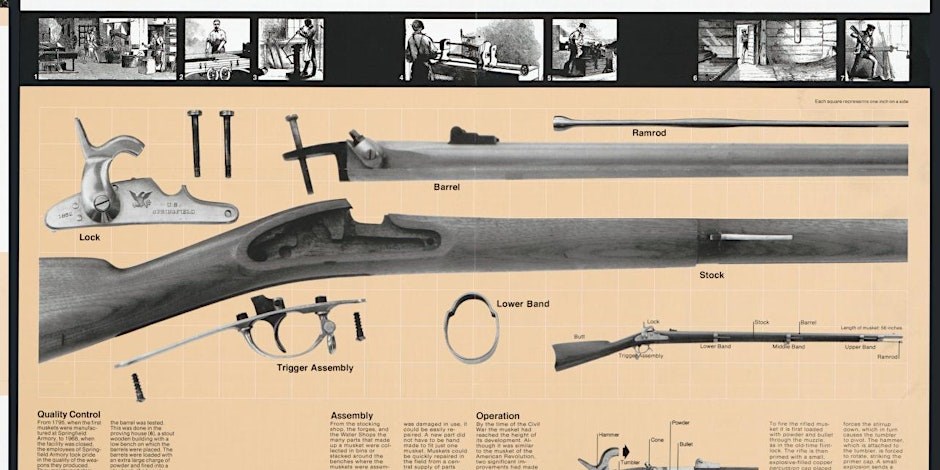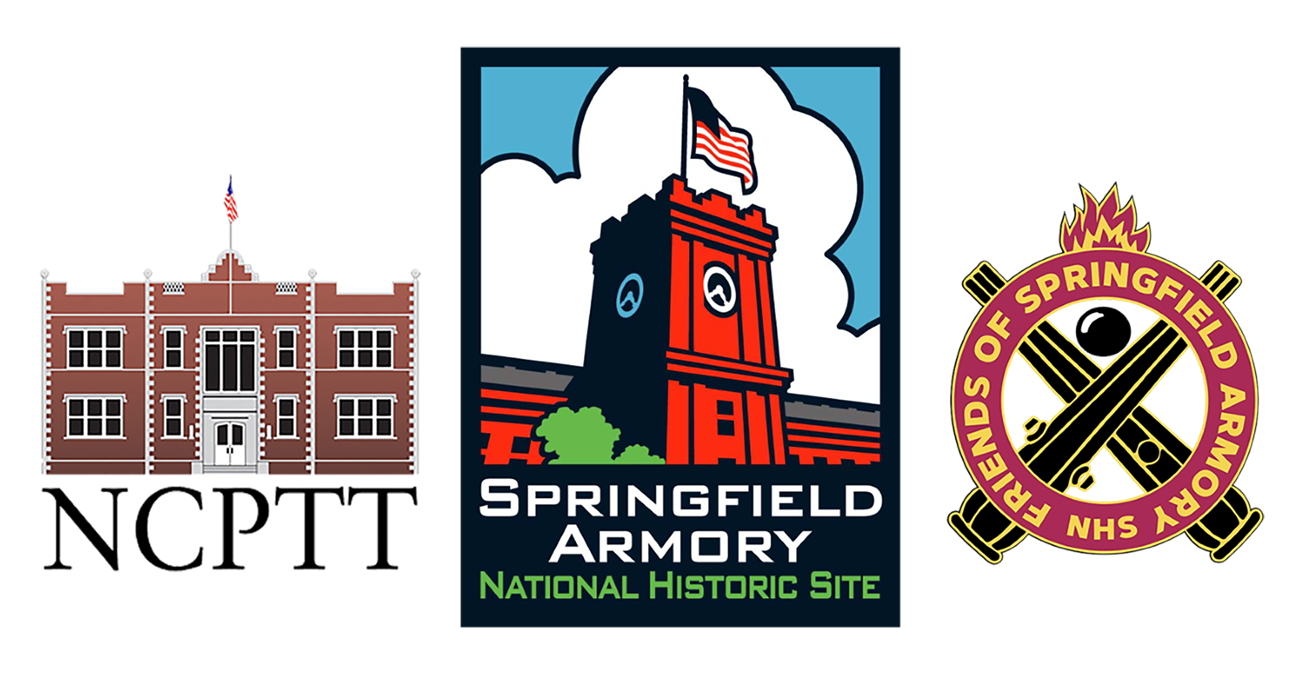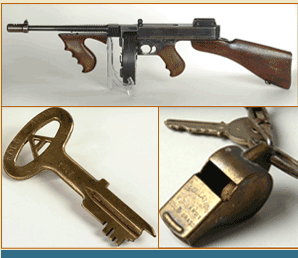Last updated: April 7, 2025
Article
Archeology of Firearms: Insights into the Human Past and Identification & Safe Handling of Ammunition
Archeology of Firearms Workshop is currently undergoing a review process!
NCPTT, and our dedicated partners, strive to offer content that is both current and engaging. We invite you to check back to discover the refreshed version of this workshop.
The Springfield Armory National Historic Site, Springfield, Massachusetts
Over the past several centuries, firearms technology burst onto world history and brought about massive changes in the scope and nature of human conflict. They dramatically altered economic adjustments and patterns across the world. Firearms became distinctive elements of regional material culture. It is not surprising that gun parts and ammunition are nearly ubiquitous in North American historical archeological assemblages. With thoughtful consideration, archeological residues of firearms usage can provide insights into the human past.

Who should attend: Cultural resource managers and specialists from federal agencies, tribal, state, and local governments; private contractors; professors and students; and international cultural resource personnel with responsibilities concerning the identification, evaluation, and preservation of archeological and other cultural resources.
Objectives
This workshop will discuss and demonstrate methods for studying firearms, firearm parts and ammunition components found in archeological contexts. The archeology of firearms refers to the information, analytical techniques, and conceptual approaches that archeologists can use to understand the material residues of guns and use them to investigate important human behaviors that involved firearms use.
A variety of subjects will be addressed:
Recognizing and interpreting gun parts; unexploded ordinances; evidence of firearms operation; incident reconstruction; artillery for the archeologist; recovery of firearms and their residue; and firearms research strategies.
Activities include:
- range safety,
- blank firing of flintlock, percussion, and cartridge firearms;
- hands-on interpretation of a firearms and acoutrements assemblage;
- identification of bullets and cartridge cases,
- safe handling of ammunition; and,
- "Museum Moments" with the Springfield curator.
Instructors
- Dr. Douglas Scott, Colorado Mesa University, ddscott@coloradomesa.edu
- Dr. Peter Bleed, University of Nebraska-Lincoln, Emeritus, peterbleed1315@gmail.com
- Joel Bohy, Bruneau Auctions, joel@bruneauandco.com
- Janene Johnston, Jamestown Rediscovery, jjohnston@preservationvirginina.org
- Tom Gersbeck, USMC ret. EOD, tom212021@outlook.com
- Dan Elliott, Lamar Institute, dantelliott@gmail.com
- Susan Ashman, Springfield Armory National Historic Site, range instructor, e-mail us
- Alex MacKenzie, Springfield Armory National Historic Site, e-mail us
Logistics
Dates: TBD
Location: Springfield Armory National Historic Site, 1 Armory Street, Springfield, MA 01105. The workshop will be held in the Springfield Armory basement conference room.
Air Traffic: Bradley International Airport
Rail: Springfield Station, Amtrak
Carpooling: We encouraged vehicle sharing. NCPTT will have a vehicle to assist with transport. Please call Tad Britt at (318) 521-5641 to discuss arrangements.
Lodging: Holiday Inn Express Downtown Springfield
Food: Meals will be the responsibility of the participants. Refreshments will be provided by the Friends of Springfield Armory National Historic Site.
____________________________________________________________
About the Organizer- The National Center for Preservation Technology, and Training is located in Natchitoches, Louisiana. Our mission is to preserve cultural resources through the use of science and technology, and we work with a variety of partners, including government agencies, academic institutions, and non-profit organizations, to develop and implement preservation technologies and techniques.
At NCPTT, we conduct research, develop and disseminate technical information, and provide training and education on preservation technologies and techniques. Our research and educational programs focus on a wide range of topics, including materials conservation, architectural conservation, archeology, and cultural landscapes.Event registration managed by Cane River National Heritage Area.


Register for this Workshop
Fee: Regular $700, $350 students with valid student ID.
Deadline to apply:
One week before the workshop start date.
Workshop Cancellation Policy:
Since workshops and conferences fill quickly, please sign up as early as possible. If you need to withdraw from an event, you must contact the organizers in writing via email (e-mail us). Cancellations more than 30 days prior to an event will be fully refunded less a $30 administrative fee. No refunds will be available for cancellations within 30 days of the event, but funds may be credited towards a future NCPTT event. If the sponsors must cancel an event, you may choose a full refund of the registration fee or a credit for a future NCPTT event.
Reasonable Accommodation Requests:
In accordance with the Rehabilitation Act of 1973 (amended), the National Park Service will provide reasonable accommodation for the known physical and intellectual limitations of qualified employees and applicants with a disability unless the accommodation imposes an undue hardship on the agency. We're committed to providing access to this training for all participants. If you need reasonable accommodations, please contact Tad Britt via email or phone. Their contact info is below. We need 10 business days advance notice before the deadline to register.
Contact Information
Questions should be directed to Tad Britt, e-mail us (318) 521-5641.

